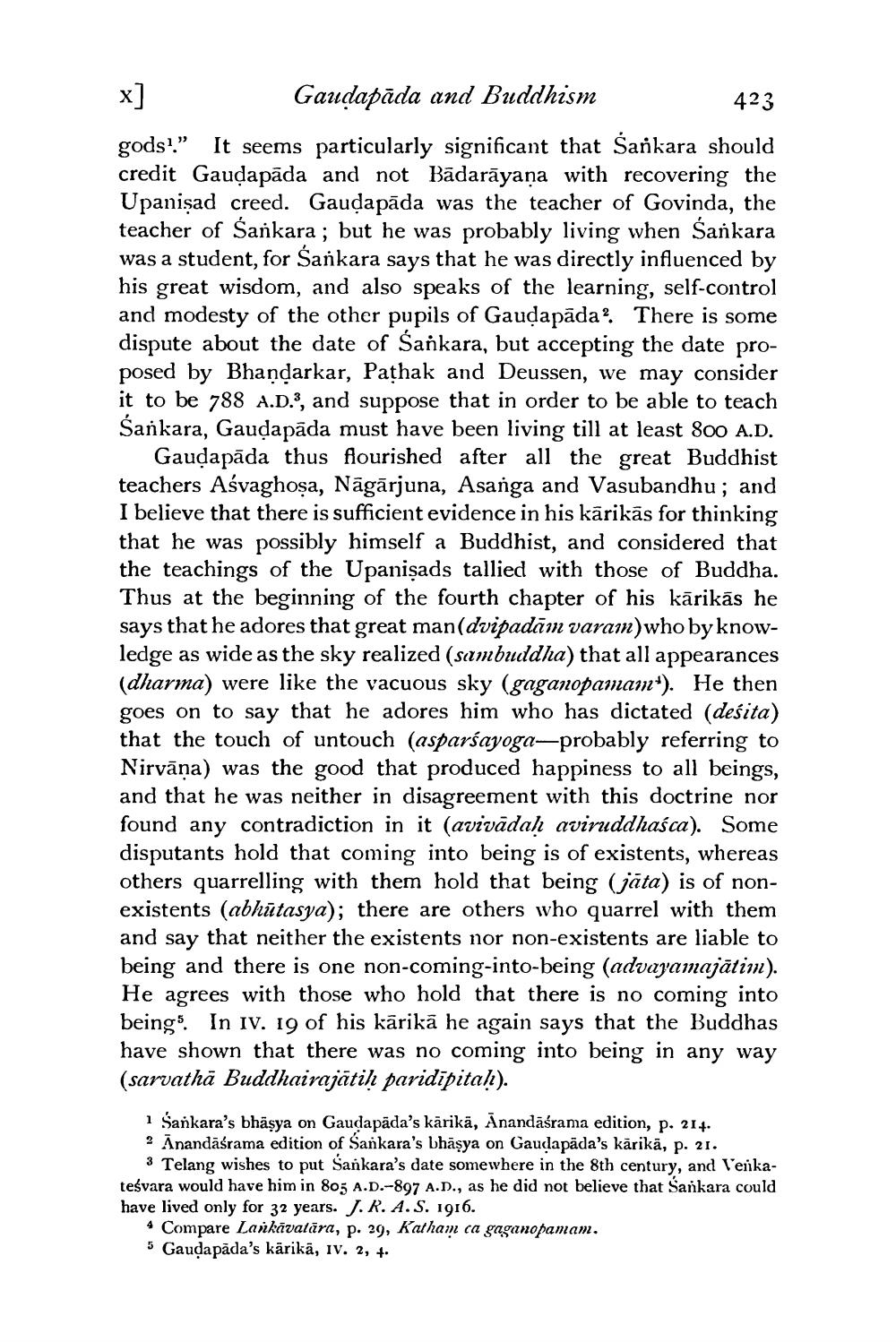________________
x]
Gaudapada and Buddhism
423
gods'." It seems particularly significant that Šankara should credit Gauḍapada and not Bādarāyaṇa with recovering the Upanisad creed. Gauḍapada was the teacher of Govinda, the teacher of Sankara; but he was probably living when Śankara was a student, for Sankara says that he was directly influenced by his great wisdom, and also speaks of the learning, self-control and modesty of the other pupils of Gauḍapada. There is some dispute about the date of Sankara, but accepting the date proposed by Bhandarkar, Pathak and Deussen, we may consider it to be 788 A.D.3, and suppose that in order to be able to teach Śankara, Gauḍapāda must have been living till at least 800 A.D.
Gauḍapada thus flourished after all the great Buddhist teachers Asvaghoṣa, Nāgārjuna, Asanga and Vasubandhu; and I believe that there is sufficient evidence in his kārikās for thinking that he was possibly himself a Buddhist, and considered that the teachings of the Upanisads tallied with those of Buddha. Thus at the beginning of the fourth chapter of his kārikās he says that he adores that great man (dvipadam varam) who by knowledge as wide as the sky realized (sambuddha) that all appearances (dharma) were like the vacuous sky (gaganopamam1). He then goes on to say that he adores him who has dictated (desita) that the touch of untouch (asparśayoga-probably referring to Nirvāņa) was the good that produced happiness to all beings, and that he was neither in disagreement with this doctrine nor found any contradiction in it (avivadaḥ aviruddhaśca). Some disputants hold that coming into being is of existents, whereas others quarrelling with them hold that being (jāta) is of nonexistents (abhūtasya); there are others who quarrel with them and say that neither the existents nor non-existents are liable to being and there is one non-coming-into-being (advayamajātim). He agrees with those who hold that there is no coming into beings. In IV. 19 of his kārikā he again says that the Buddhas have shown that there was no coming into being in any way (sarvatha Buddhairajātiḥ paridipital).
1 Sankara's bhāṣya on Gauḍapada's kārikā, Anandāśrama edition, p. 214.
2 Anandāśrama edition of Sankara's bhāṣya on Gauḍapada's kärikā, p. 21.
3 Telang wishes to put Sankara's date somewhere in the 8th century, and Venkateśvara would have him in 805 A.D.-897 A.D., as he did not believe that Sankara could have lived only for 32 years. J. R. A. S. 1916.
4 Compare Lankavatara, p. 29, Katham ca gaganopamam. 5 Gauḍapada's kārikā, IV. 2, 4.




